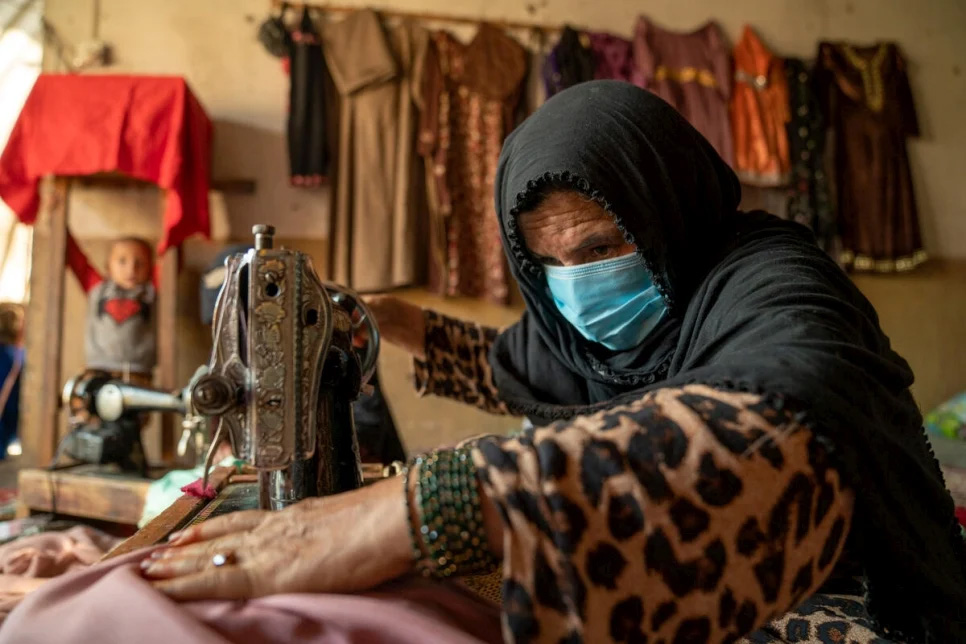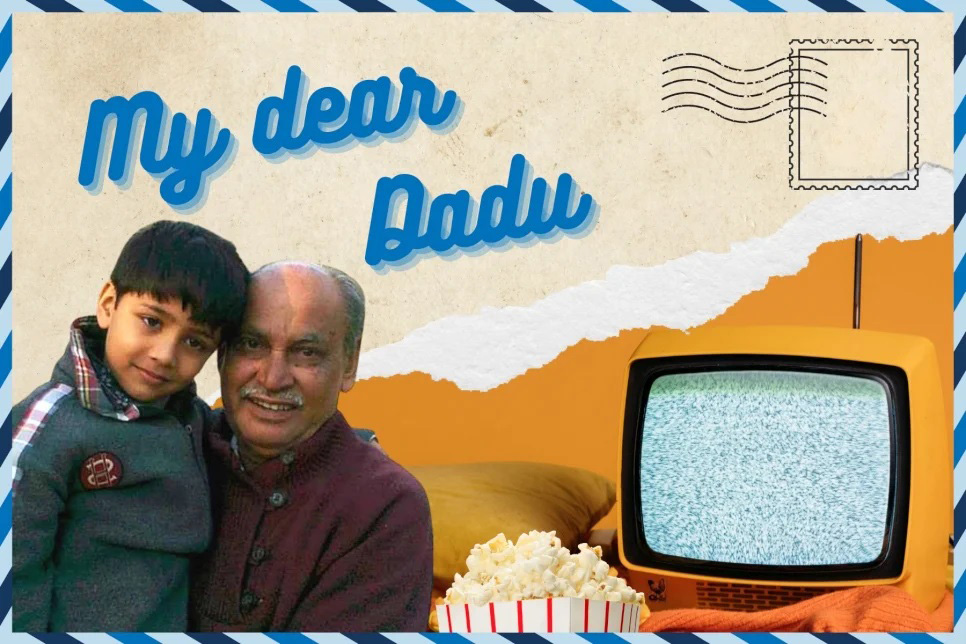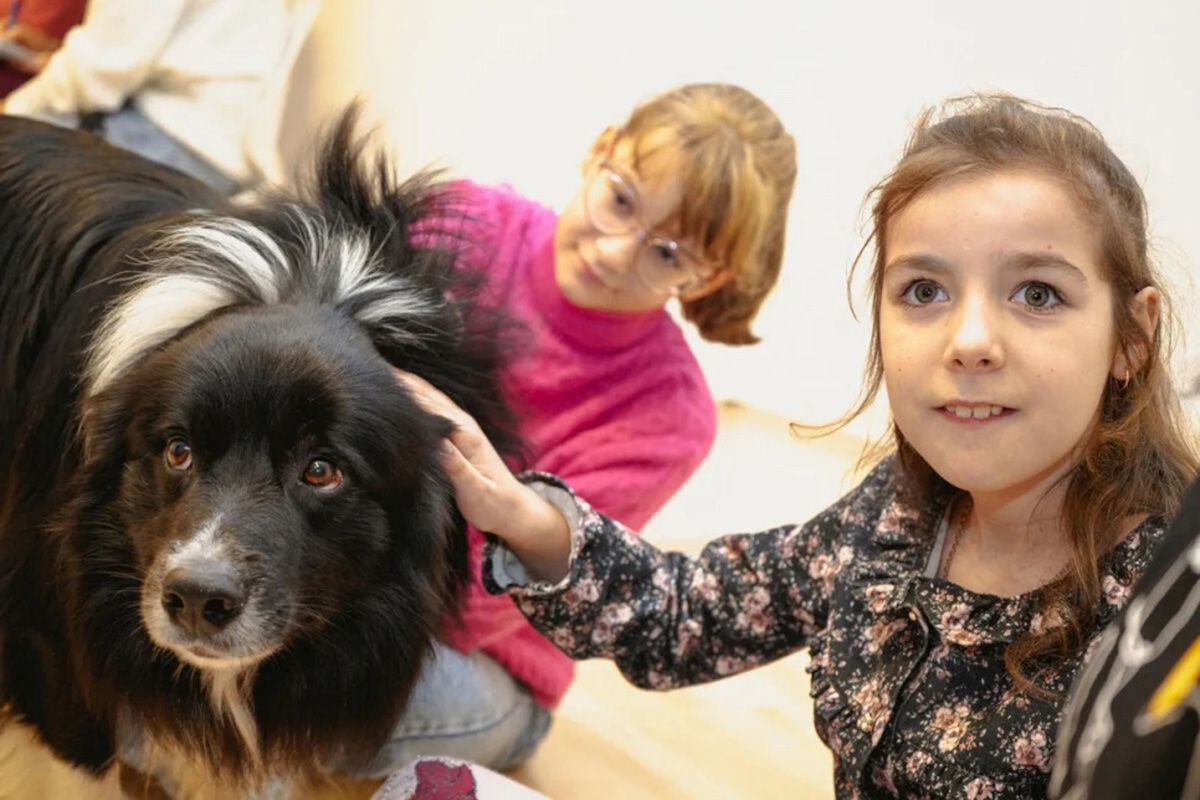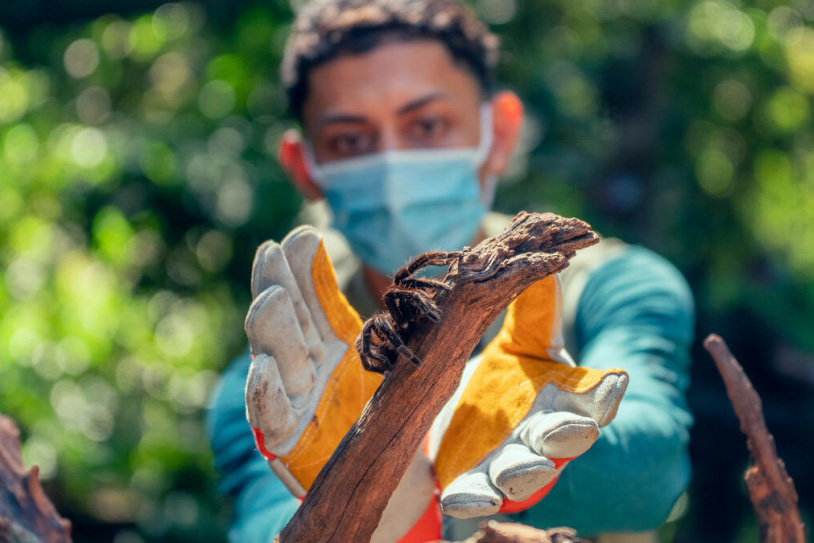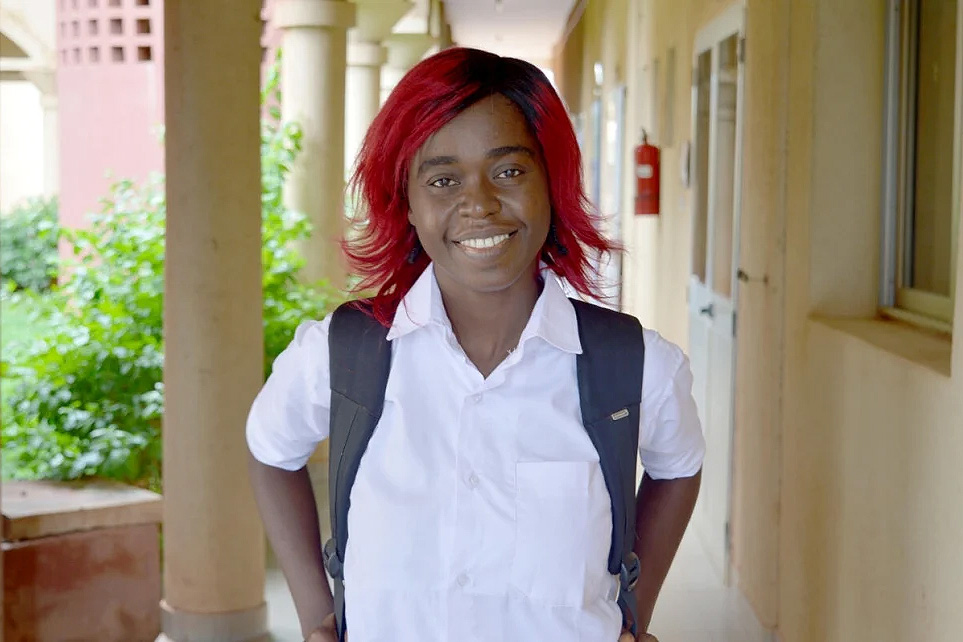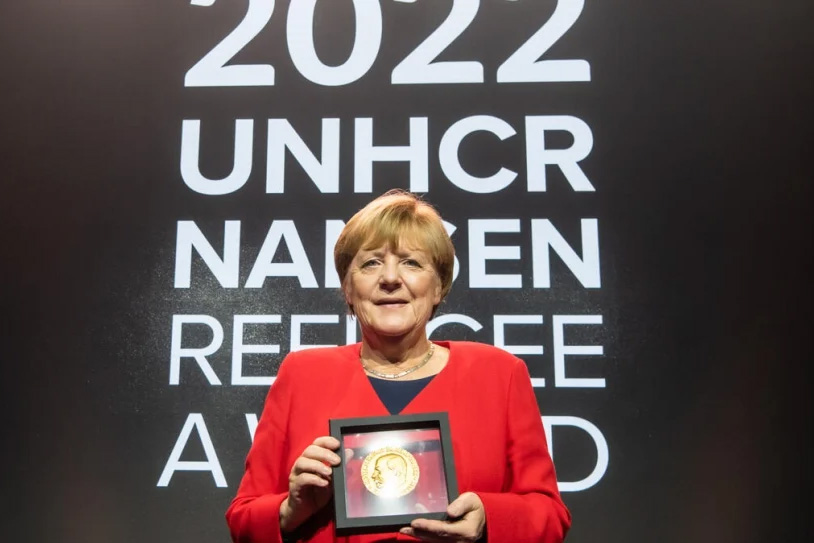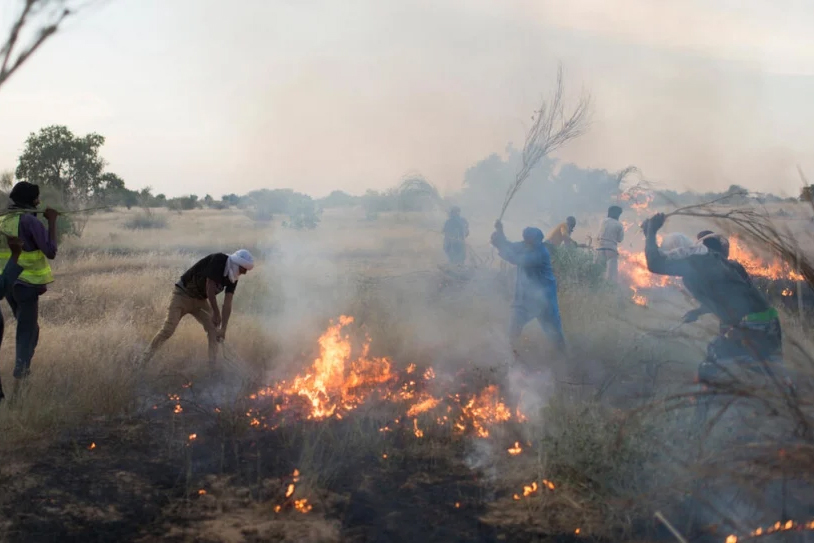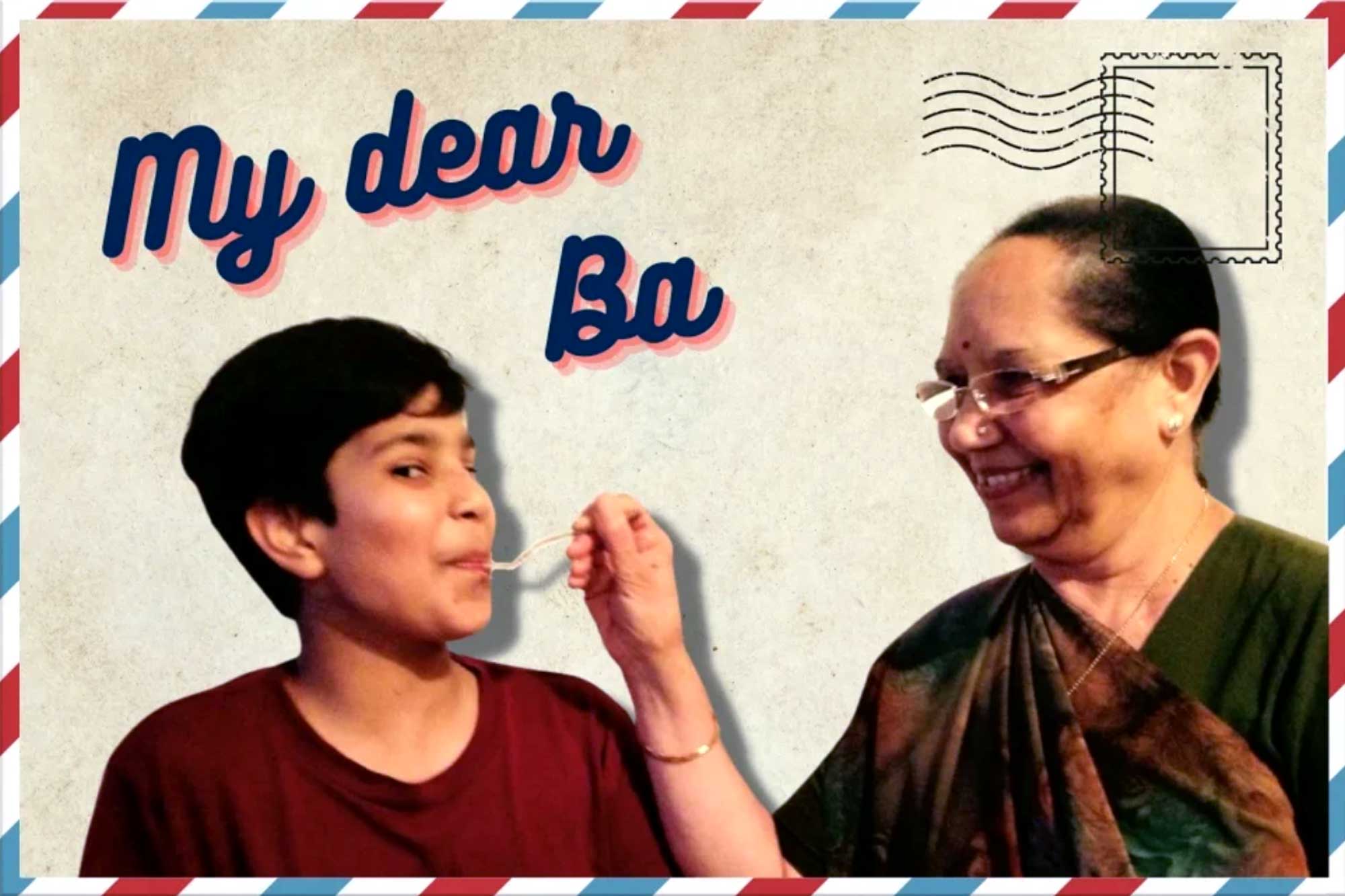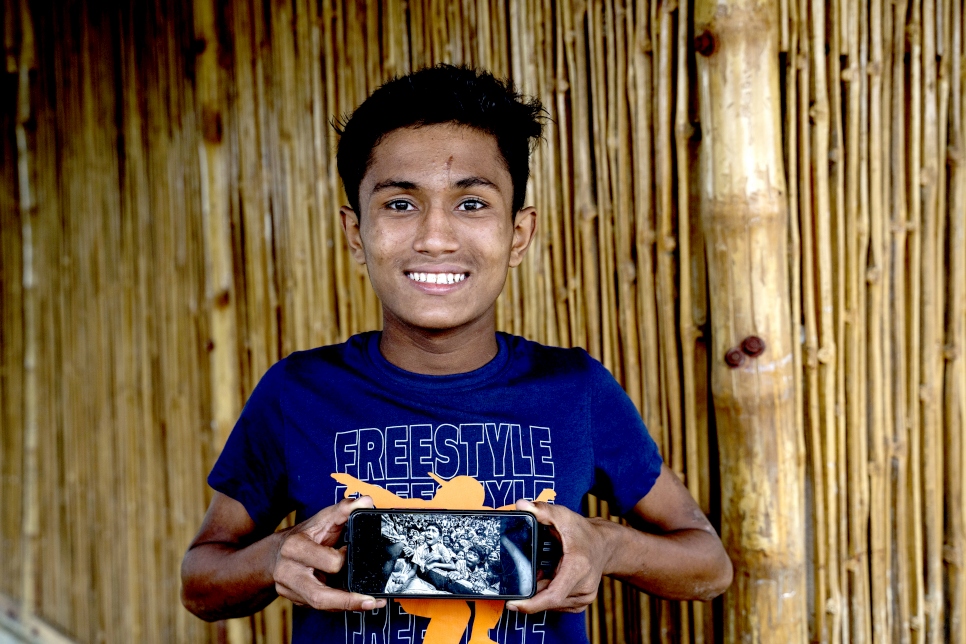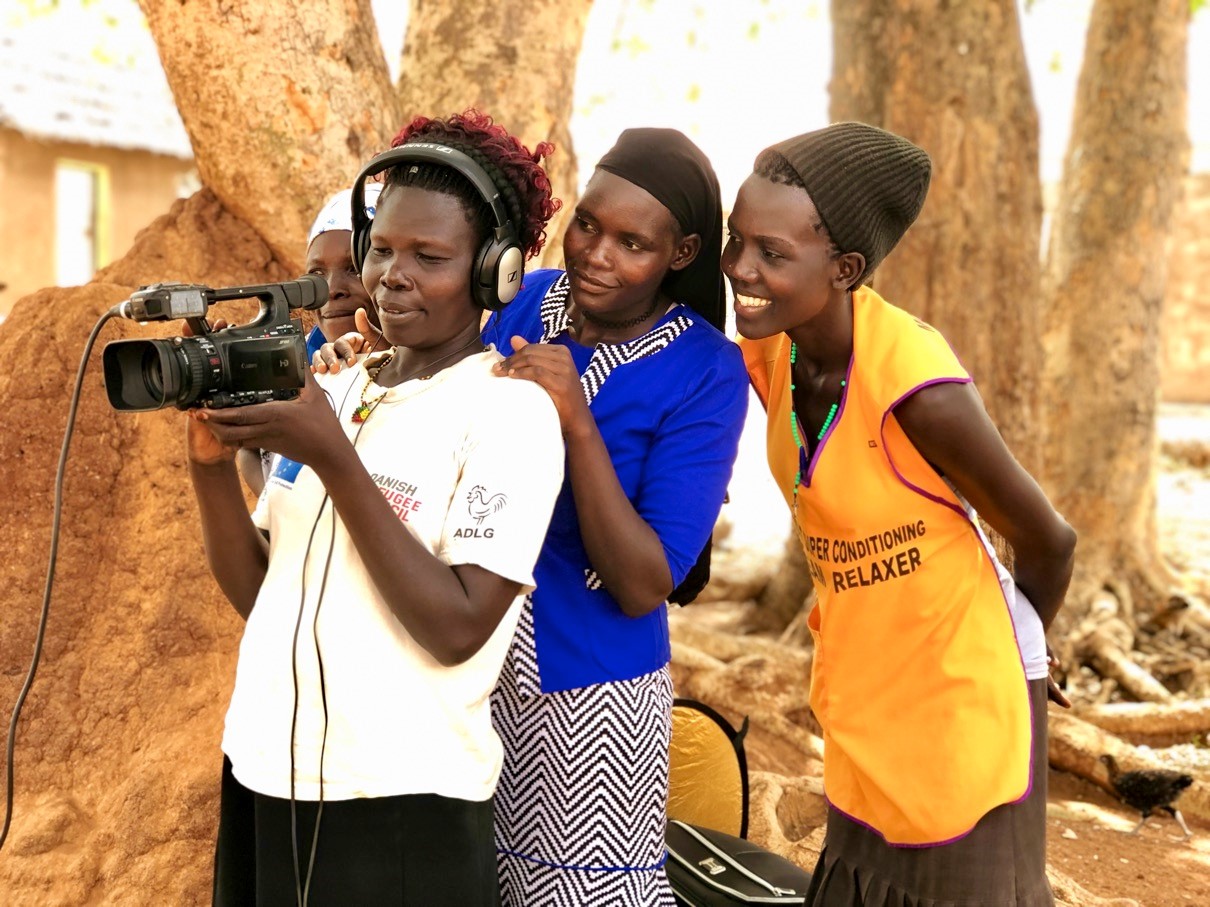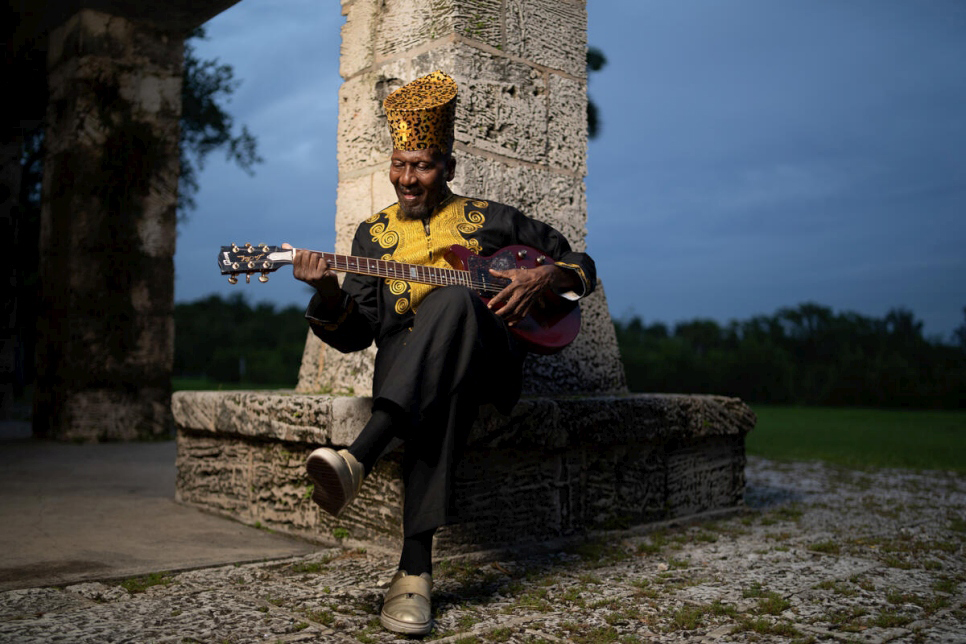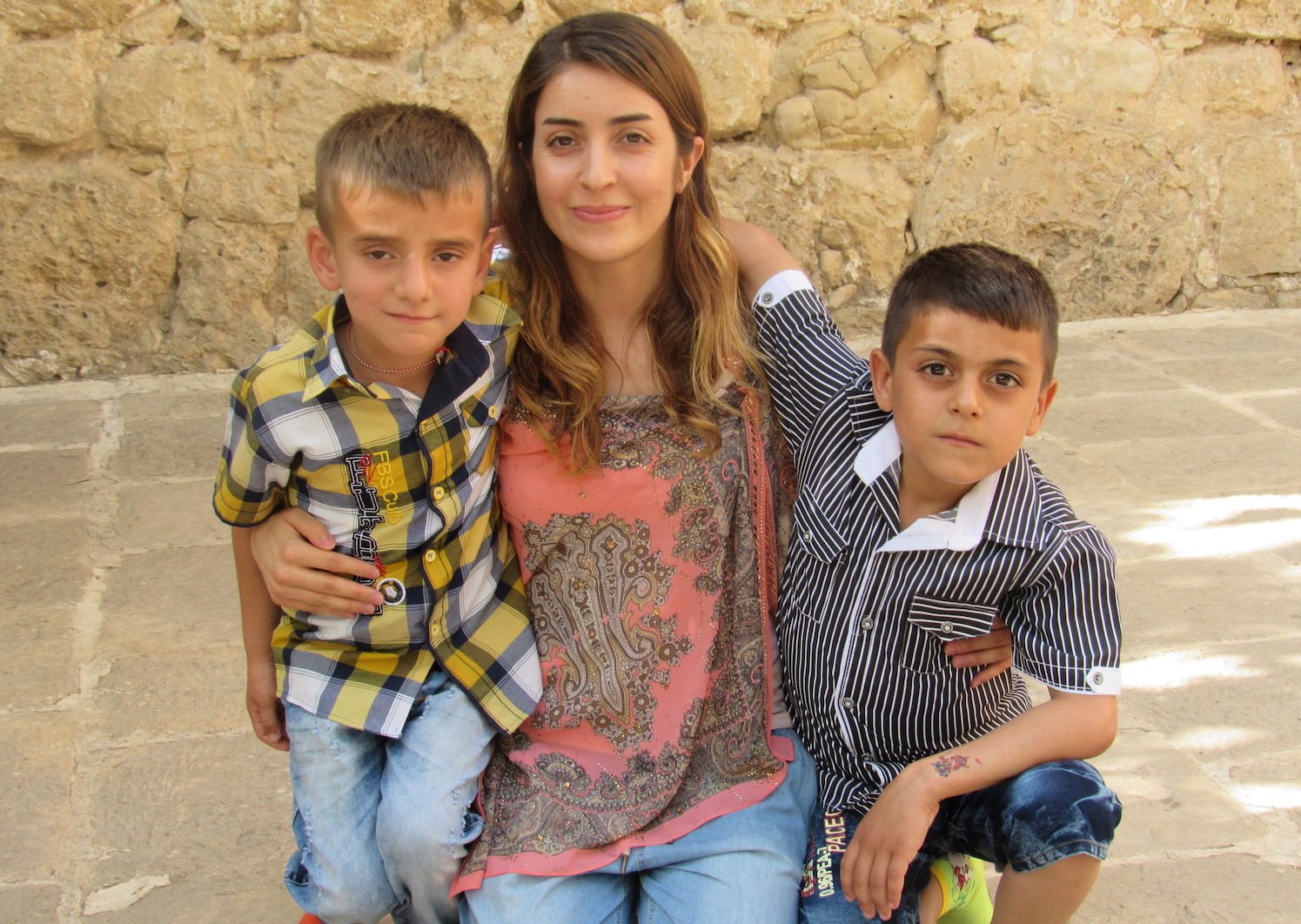A hidden crisis is enveloping neighbouring Ituri Province, in North Kivu, where civilians face extreme daily violence that has forced 1.5 million to flee their homes. UNHCR and its partners in Ituri are providing emergency shelters, distributions of household items, and vital services including psychosocial and legal support to survivors of violence.
UNHCR
A group of worried women gathered at a community centre on the outskirts of Afghanistan’s capital, Kabul. Many have recently completed a livelihoods training project run by local NGO in partnership with the UN Refugee Agency. But the future of the project and the women hangs in the balance. Recent decrees issued by Afghanistan’s authorities have barred female employees with non-governmental organisations from going to work. If the decree is not amended, projects such as this one, which involves female NGO staff training other women, will be unable to continue.
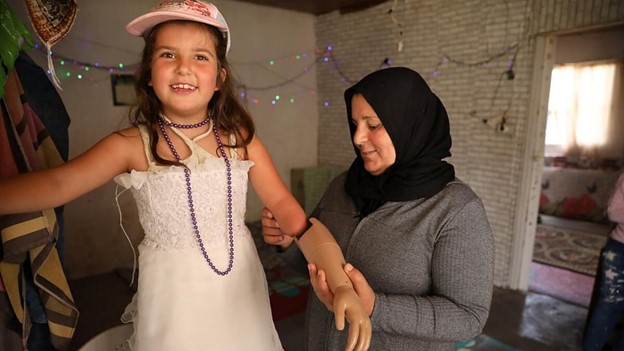
Sarah dreams in colour
Born without a forearm, Sarah’s playful spirit gives her struggling family strength as economic crisis makes a tough situation harder still. Sarah, her mother, father, sister and two brothers live in a simple two-room rooftop shack, strung with glimmering fairy lights that make Sarah smile. With a devaluing currency, the situation for the family and for Lebanon is getting worse each day. UNHCR, is seeking to alleviate the situation with initiatives including rehabilitating health-care centres and providing essential medical equipment to hospitals.
UN Refugee brings us the story of Yash, 17, who writes to his refugee grandfather, now deceased. His grandad fled as a teenager in 1947 during the partition of India, leaving everything behind.
As the war in Ukraine continues, psychotherapists are concerned for the mental health and well-being of refugees. A UNHCR partner provides stress relief from therapists and a support dog named Noir.
For Joshua, a refugee who fled gang violence, protecting the threatened tropical forests of his host country, has become both a calling and a moral imperative. Since early in the COVID-19 pandemic, Joshua has been working as a forest ranger at a natural preserve in southeastern Guatemala. Thanks to a partnership with UNHCR, FUNDAECO – the NGO that runs the preserve, prioritizes the hiring of people like Joshua, who have been forced to leave their homes due to violence, targeted threats, or persecution. Joshua, who previously described himself as a “nature beginner”, now says handling snakes is one of the highlights of a job. Find out more about Joshua’s personal transformation.
Ornella Banam escaped the civil war in Central African Republic in 2014, fleeing to Burkina Faso. She managed to continue her studies there but dropped out after her father died when she could no longer afford the fees. Last year, Banam was selected for the DAFI (Albert Einstein German Academic Refugee Initiative) scholarship programme, allowing her to return to higher education. The DAFI Tertiary Scholarship programme – funded by the UN Refugee Agency and partners is crucial to achieving the 15by30 goal, achieving 15 per cent higher education enrolment of refugees by 2030.
Dr. Angela Merkel, the former Federal Chancellor of Germany, accepted the 2022 UNHCR Nansen Refugee Award at a special ceremony in Geneva, saying the prize was in honour of “the countless people who lent a hand” when large numbers of refugees arrived in Europe in 2015 and 2016. “In reality, people’s lives happen locally, in cities and communities,” she told the audience. “And that is why I would like to thank the local politicians and employees in the municipalities in particular, as well as the many volunteers in organisations or those who provide individual assistance.”
The Mbera Fire Brigade in Mauritania, is one of the winners of the UNHCR 2022 Nansen Refugee Award, for their courage and tenacity in safeguarding lives, livelihoods and a local environment.
Aryan Sanghrajka, 18, writes to his grandma (Ba), who fled Uganda in 1972 due to the forced expulsion of Asian residents.
Introducing the first trailer for #TheSwimmers: a Netflix movie based on the remarkable journey of UNHCR Goodwill Ambassador #YusraMardini and her sister Sara.
Five years after a Pulitzer-Prize winning photo made him the face of the Rohingya refugee crisis, a young refugee has taken up a camera himself.
Though women and children make up 81 per cent of the nearly 1.53 million refugees in Uganda, refugee settlement leadership has historically lacked women’s representation. Cultural barriers, coupled with limited knowledge on rights and access to education, kept women from participating in decision-making processes. In 2018, UN Women began providing trainings for the women and youth of Adjumani and Yumbe districts, which host 30.1 per cent of Uganda’s total refugee population. The trainings included instruction in literacy, numeracy, women’s rights, leadership and life skills development, public speaking, debating and radio presentation. The results are striking.
Jimmy Cliff shines a light on people forced to flee and partners with UNHCR to create a portal to help refugees. “Refugees” continues Cliff’s long tradition of penning thought-provoking anthems.
"We were surrounded by the Islamic State. And we had no weapons even to fight. We had nothing. We were left alone." Adiba Qasim has shown extraordinary courage and resilience. She narrowly escaped when her village was stormed by Islamic State militants who killed and enslaved thousands of Yazidis. This is her story.
Returning to northern Iraq in 2015, Adiba threw herself into humanitarian work, aiding survivors who had been enslaved by the militants. In this special bitesize episode she reflects on the horrors she witnessed, on battling survivors’ guilt, and on her motivation to help others.

